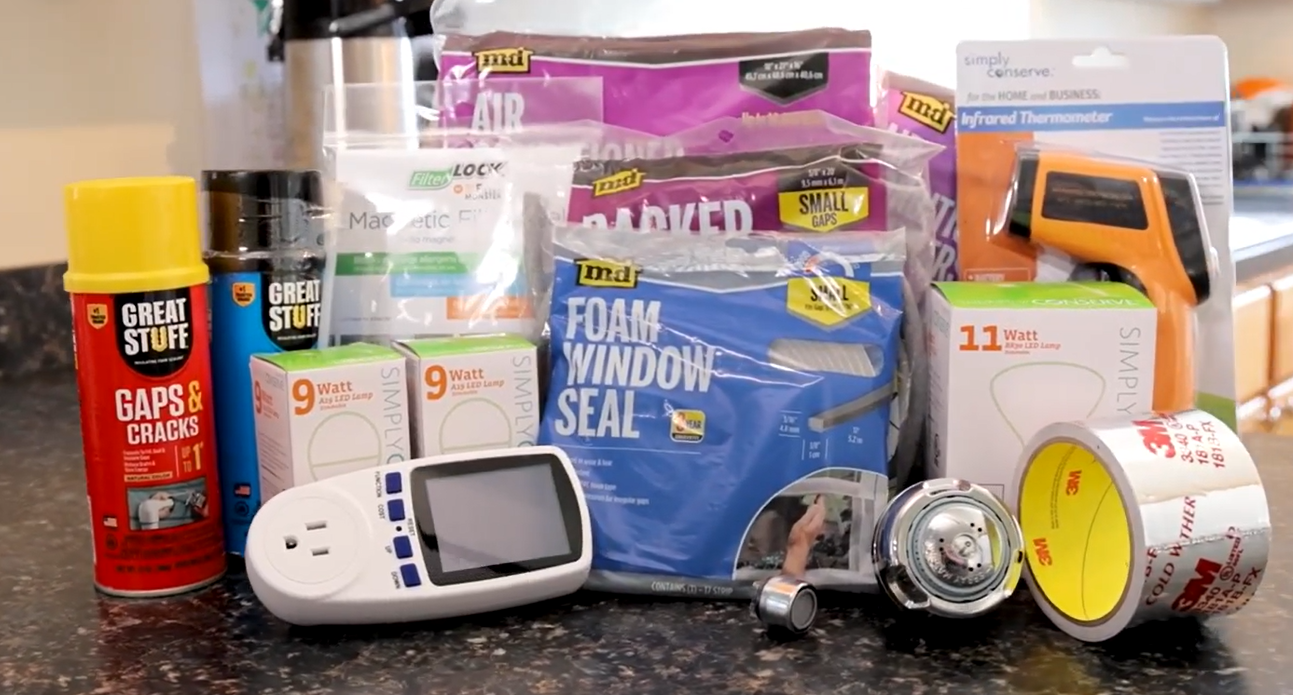Electric heaters may not be the best answer to staying warm during the winter months. When an electric space heater is used in addition to a central heating system, it often cranks up energy bills.
Why to Avoid Electric Space Heaters
When an electric space heater is used in addition to a central heating system, it often cranks up energy bills. Space heaters are commonly used to provide comfort heat, which could be provided in more efficient ways.
In fact, the Department of Energy estimates heating your entire home using a space heater can increase your bill by 43% compared to a furnace. The U.S. Consumer Product Safety Commission estimates that electric space heaters cause 1,700 home fires annually.

Electric Space Heater Alternatives
- Seal doors with weather strip kits from a home improvement or hardware store (or from your Home Energy 101 materials)
- Seal windows with plastic film insulation kits from a home improvement or hardware store (or from your Home Energy 101 materials)
- Dress in layers
- Wear wool
- Wear thicker socks or slippers
- Eat soup and other warm meals
- Drink warm beverages
- Open curtains and blinds during the day to let the sun in
- Close curtains and blinds at night to keep out the cold
- Pile extra blankets on your bed
- Switch to flannel sheets and a down comforter
- Snuggle up in a blanket whenever you’re sitting down
- Do something active (clean the house, exercise, etc.)
- Wear a hat to prevent heat loss
- Put on clothes as soon as they come out of the dryer
- Use rugs on bare floors
- Block drafts with weather stripping, rolled up towels or homemade draft stoppers
- Keep your fireplace flue closed when you don’t have a fire to prevent unnecessary heat loss
- Make sure heat vents, registers and radiators are free of obstructions. If vents are covered with furniture, the warm air won’t reach you.

Use and Safety of Electric Space Heaters
If an electric space heater is necessary choice for your situation, consider the following:
Sometimes small electric space heaters are used when only one room needs
supplemental heat, or when central heating is too expensive to install. In some
cases, they can be less expensive if only one room needs to be warmer than others, rather than overheating the entire home. This is common when an elderly
person or child needs extra heat. It is also important to purchase an energy efficient space heater, and to turn down your thermostat if you plan to use one.
Due to the high power draw of electric space heaters, it is very important to follow these safety guidelines when buying and installing a space heater:
Only purchase models that are Underwriter’s Laboratory (UL) certified.
Select a thermostatically controlled heater because they do not waste energy overheating a room.
Select a heater that is the proper size for the room, which can be done using the sizing table on the box or online. Oversized heaters will waste energy.
Place the space heater on a level surface away from foot traffic, especially pets and children.
Select a unit that turns off if it is tipped over; this is called a tip-over safety switch.
Keep the heater at least three feet away from anything that can burn (i.e. papers, clothing, upholstery and curtains).
Plug the heater directly into the wall rather than an extension cord.
Most space heaters are 1,500 watts. If you are operating a space heater 8 hrs/day and your electricity rate is.12/kWh, then 1,500 watts /1,000 =1.5kW x 240 hours per month = 360 kWh x $0.12/kWh = $43.20 per month.
[*Dividing by 1,000 converts watts to kilowatts]


